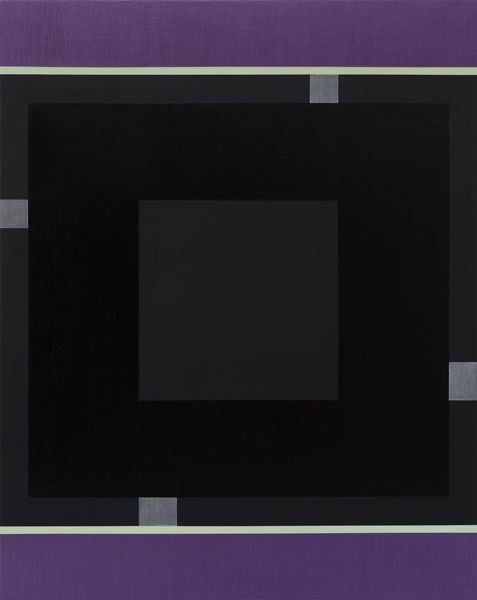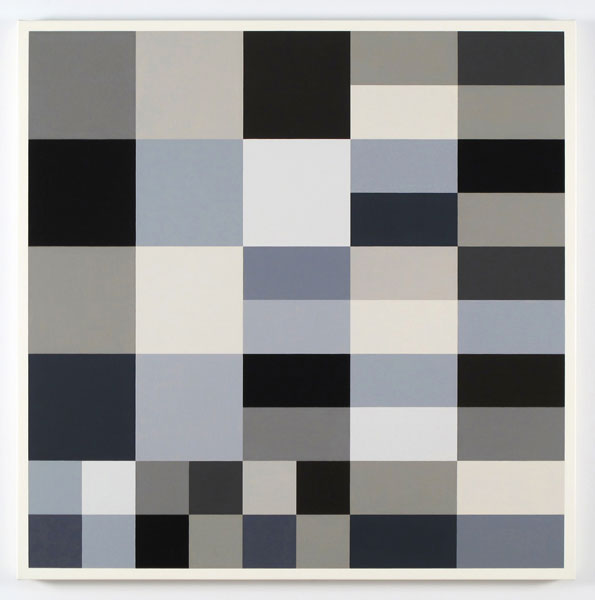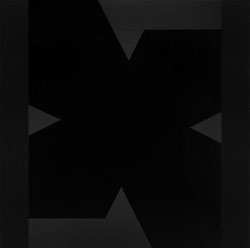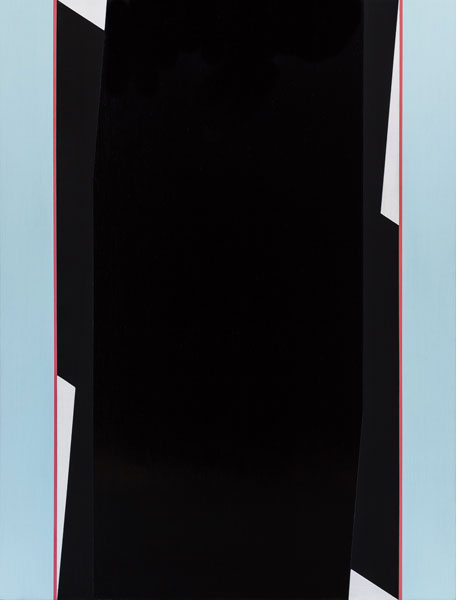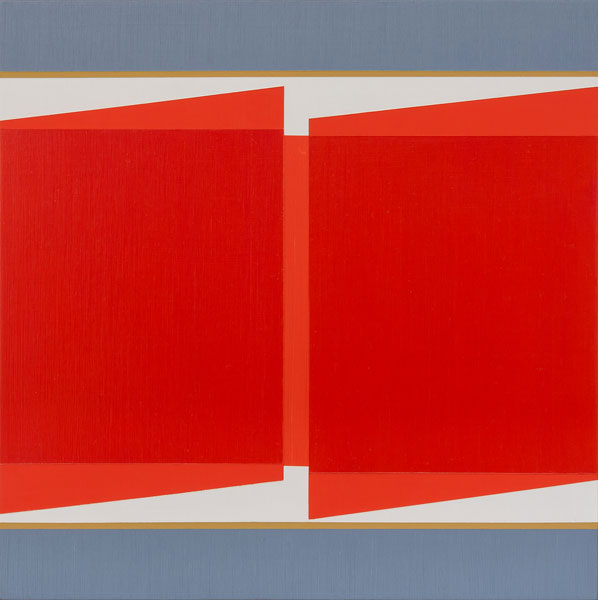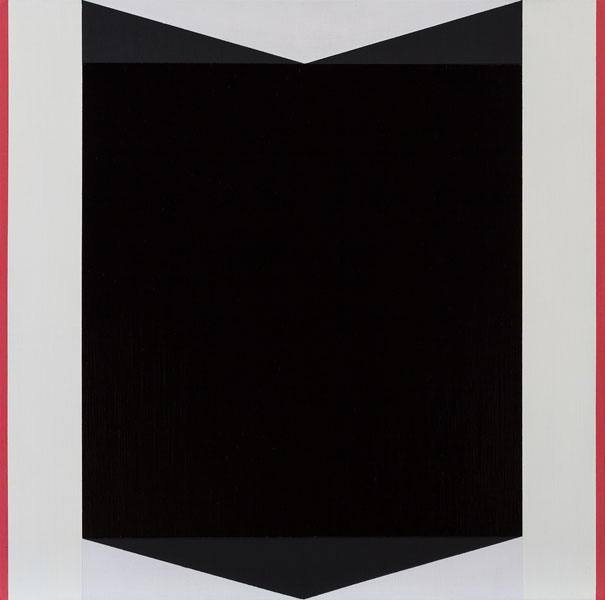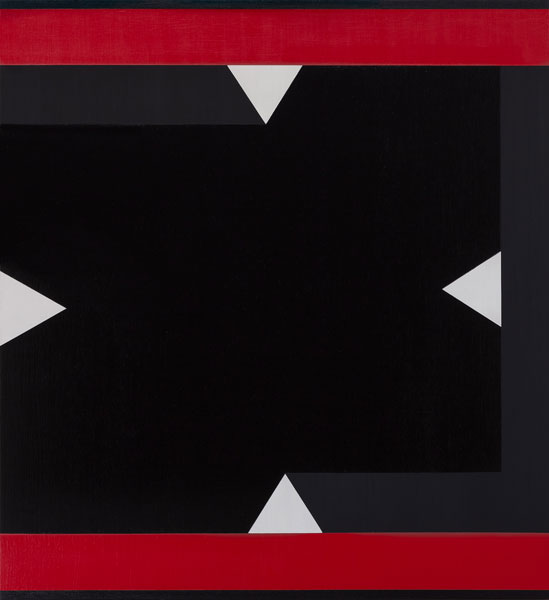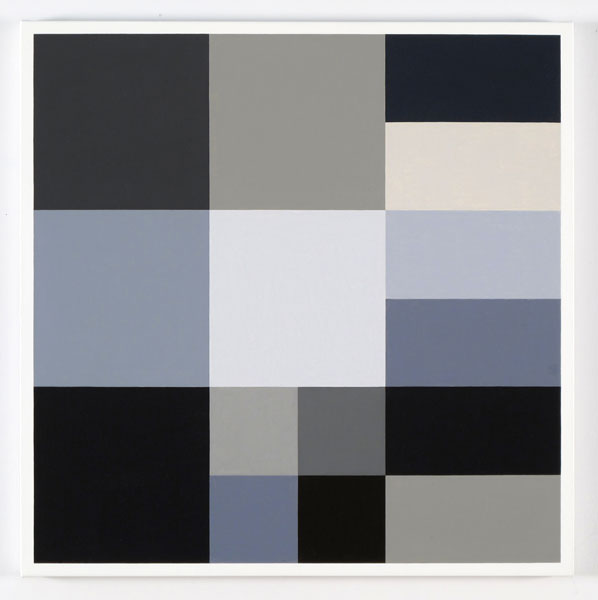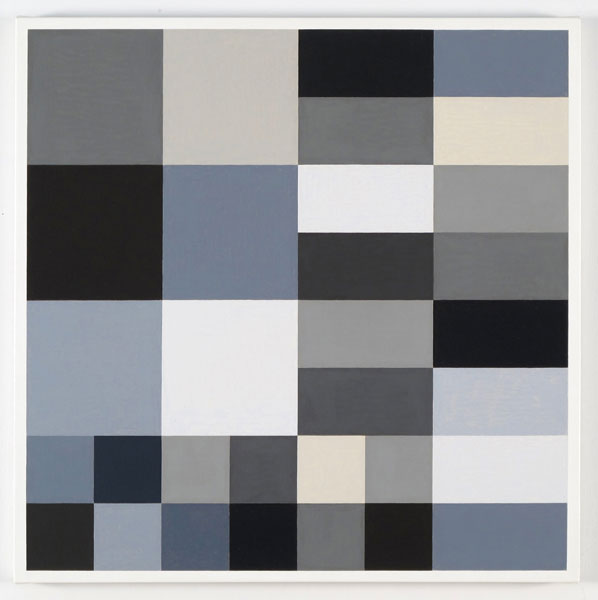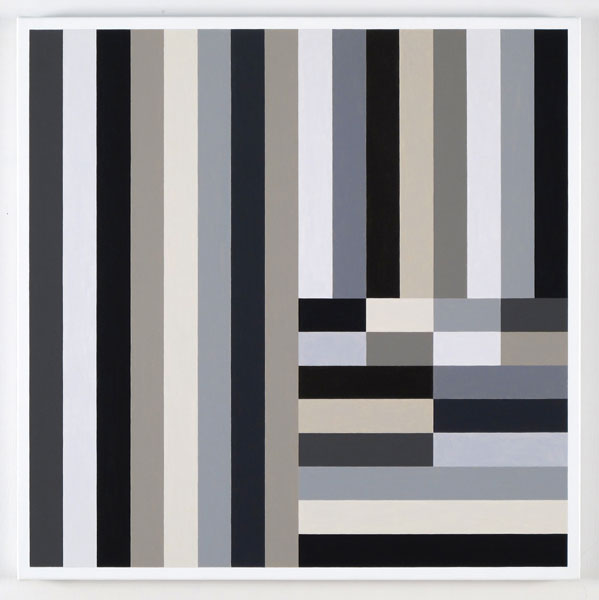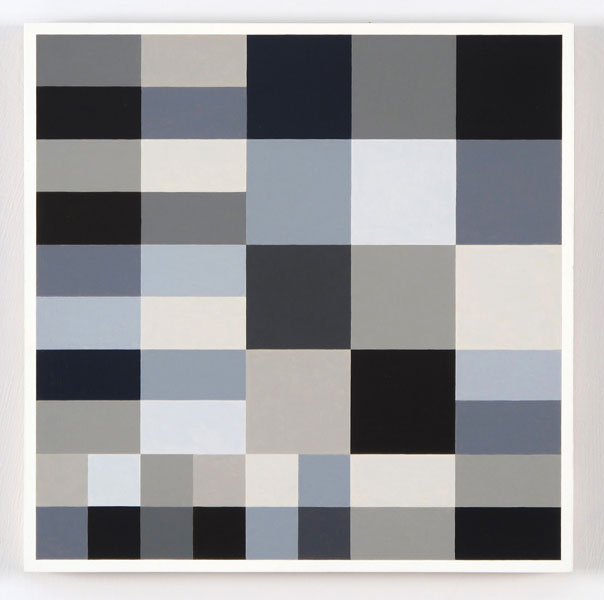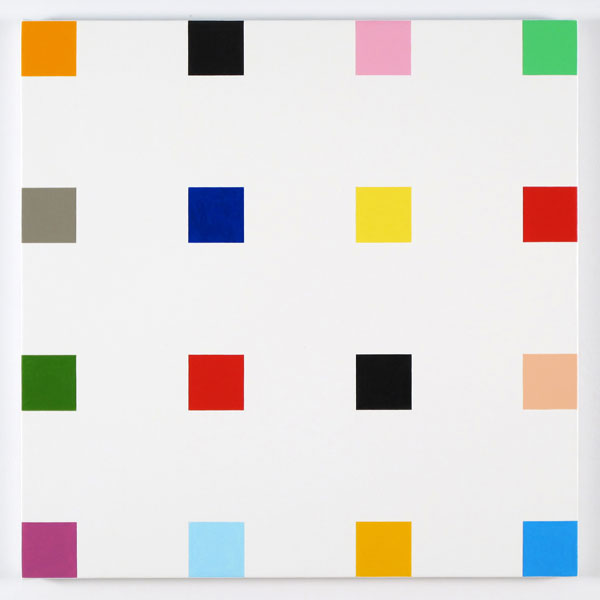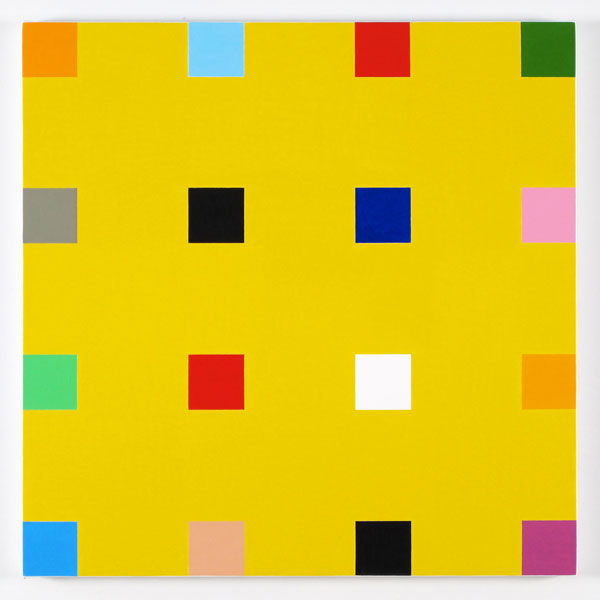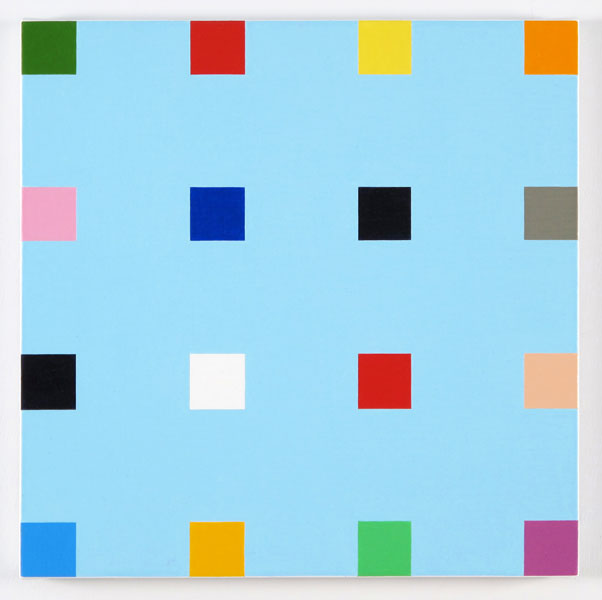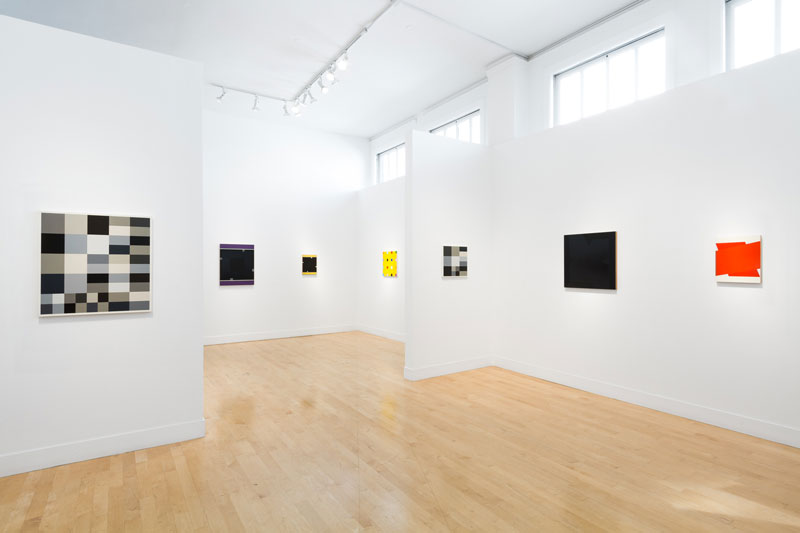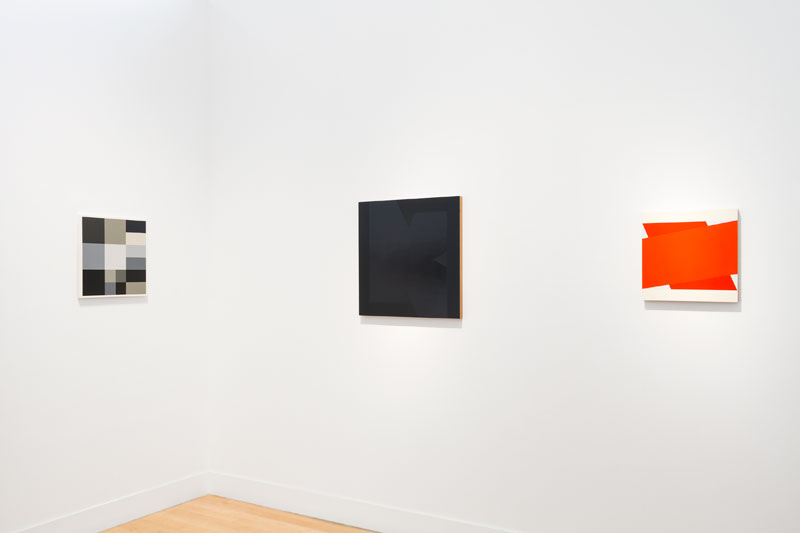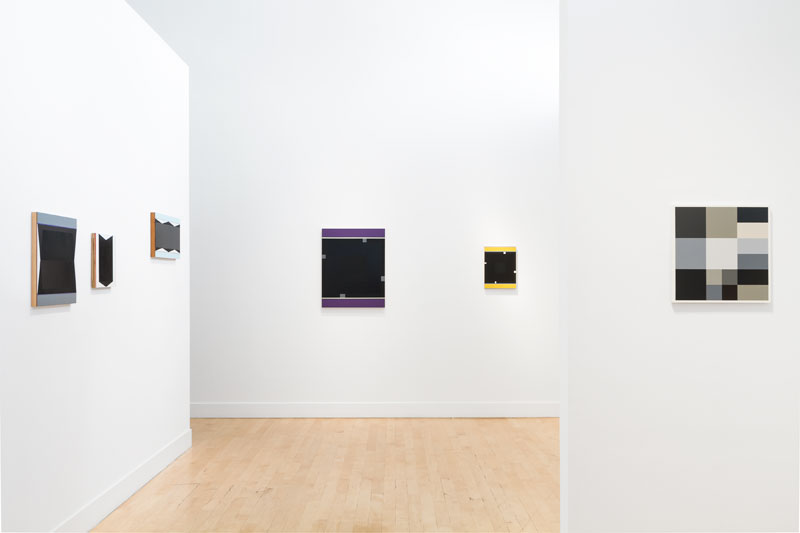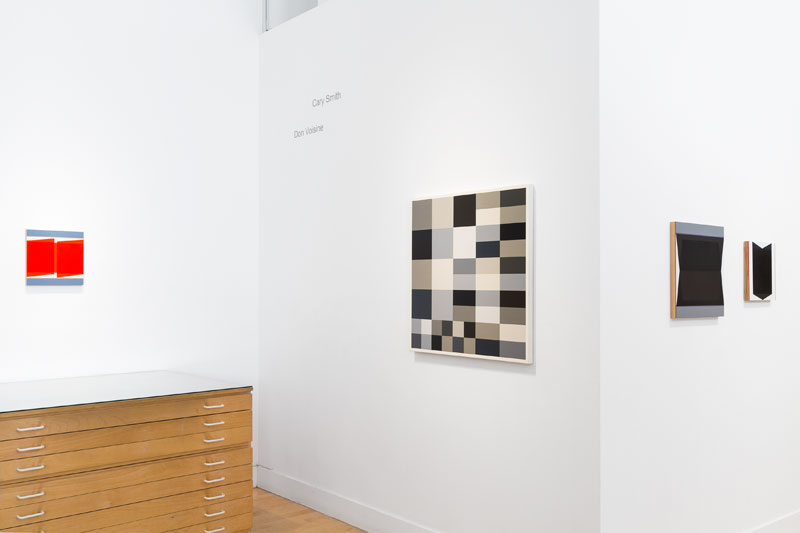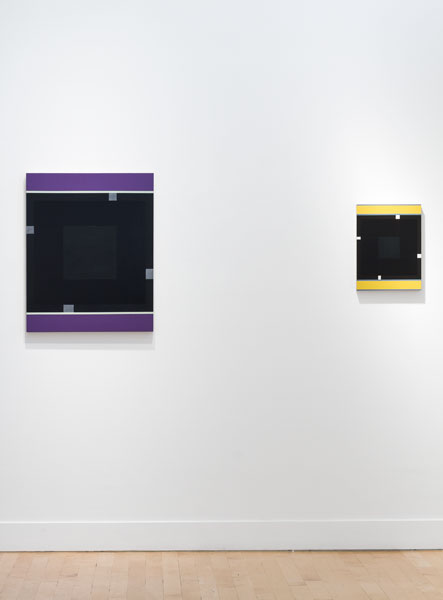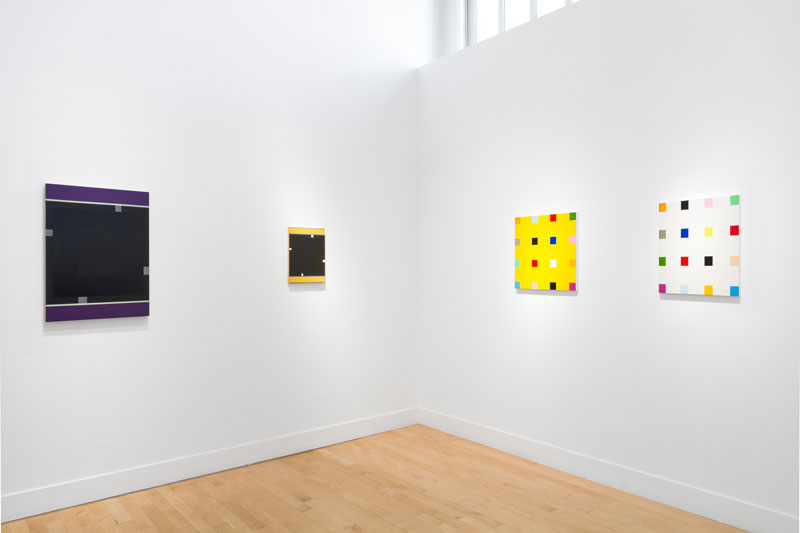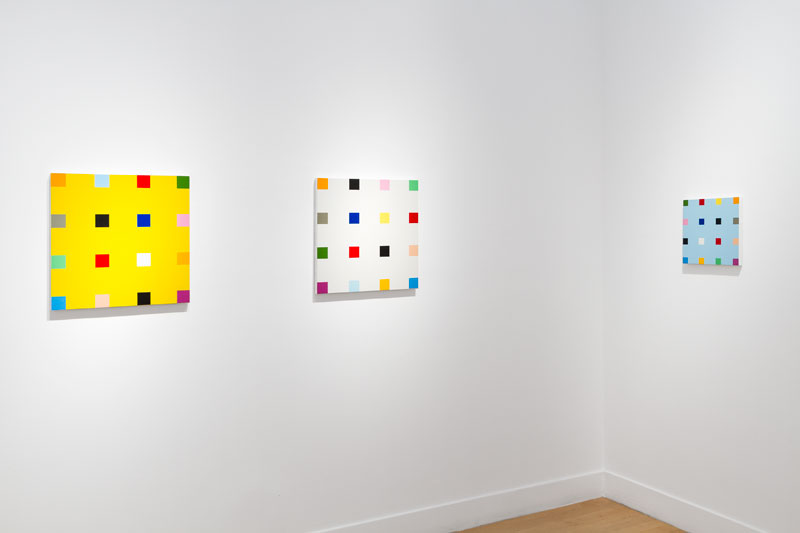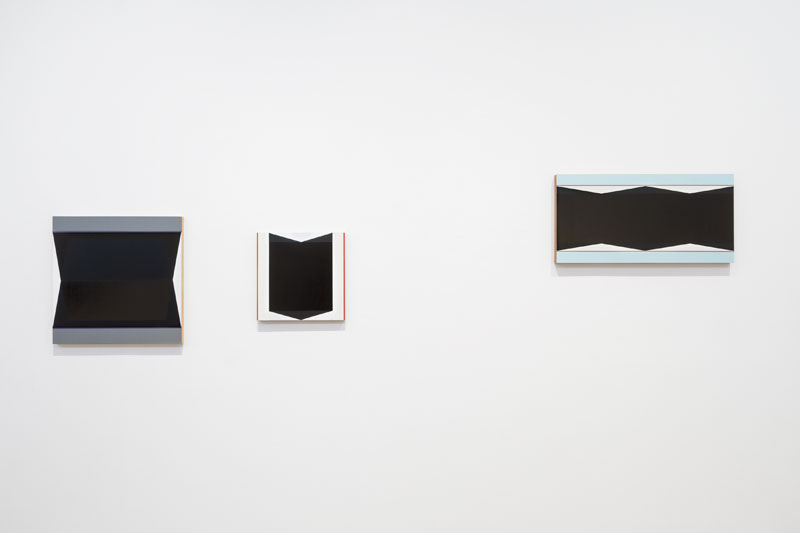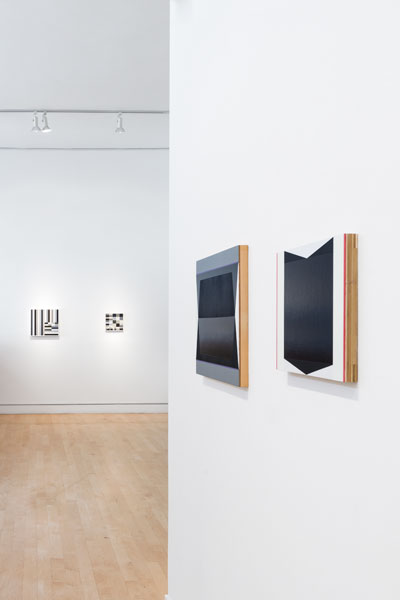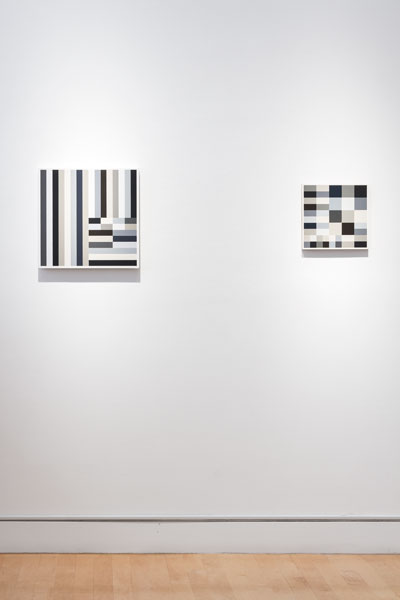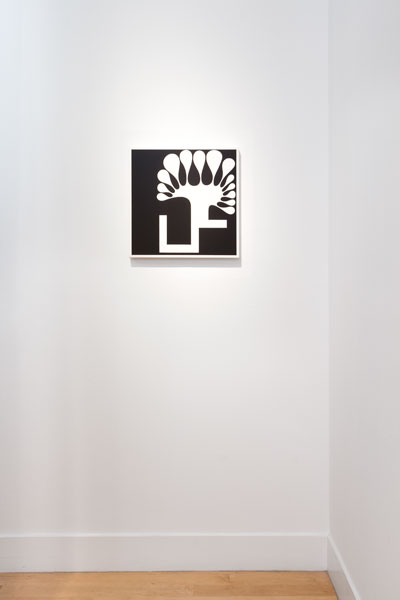Don Voisine / Cary Smith
November 6–December 20, 2014
Gregory Lind Gallery is pleased to present a series of new paintings by Don Voisine and Cary Smith, whose visual lexicons reveal a form of geometric abstraction that points to influences both ancient and postmodern. The morphological possibilities of geometry and color are explored in vivid detail by Voisine and Smith, whose respective processes point to new forms of inventiveness.
Don Voisine’s works are complex and dense with meaning, despite their surface simplicity. Voisine’s process engages viewers such that they are exhorted to slow down in order to meditate upon the work at hand. Voisine is not particularly interested in the instantly welcoming or legible, nor the purely optical. He consistently overlays matte geometric shapes with glossy ones, interrupting these spaces with a white (which is rarely pure) that can be alternately interpreted as space, light, or an intersecting solid plane. The result can often be disorienting, as it seeks to engage multiple senses. The visual and visceral can rarely be extricated from each other in Voisine’s works. The pieces themselves are suggestive of sculpture, as they seem to designate material objects in space even as they are presented to us as flat surfaces. There are no easy distinctions or perceptive boundaries in these works; as the viewer continues to reflect upon them, he or she is invited to draw conclusions, which link the intangibility of inner space with the conundrums inherent in the perception of outer space.
Cary Smith’s pursuit of a controlled form of abstraction, both geometric and biomorphic, subtly points to the influences of 18th- and 19th-century aesthetics, as well as mid-century art and design. Smith’s paintings draw from sources as disparate as Colonial-era game boards to pop art. Monochromatic handmade fields devised with restrained brushwork reveal a meticulous and disciplined commitment to the process, which is all the more remarkable given the subtlety of the brushwork. Moreover, even the paintings that utilize a gray palette are a cogent celebration of color, which evokes an exalted and slightly psychedelic atmosphere. Instead of stringently conforming to the purity of Modernism, Smith’s approach is more instinctive than formulaic. Smith has noted: “I make my art with a divining rod. When it starts to move, that’s where I want to go.” But despite the diversity of compositional devices he deploys, Smith operates on the basis of a painting’s essential objecthood. This is made even more evident with his inclusion of a frame that surrounds the painting, as well as his emphasis of a painting’s edge.
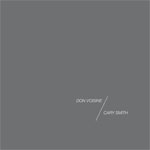
with an essay written by John Yau.

